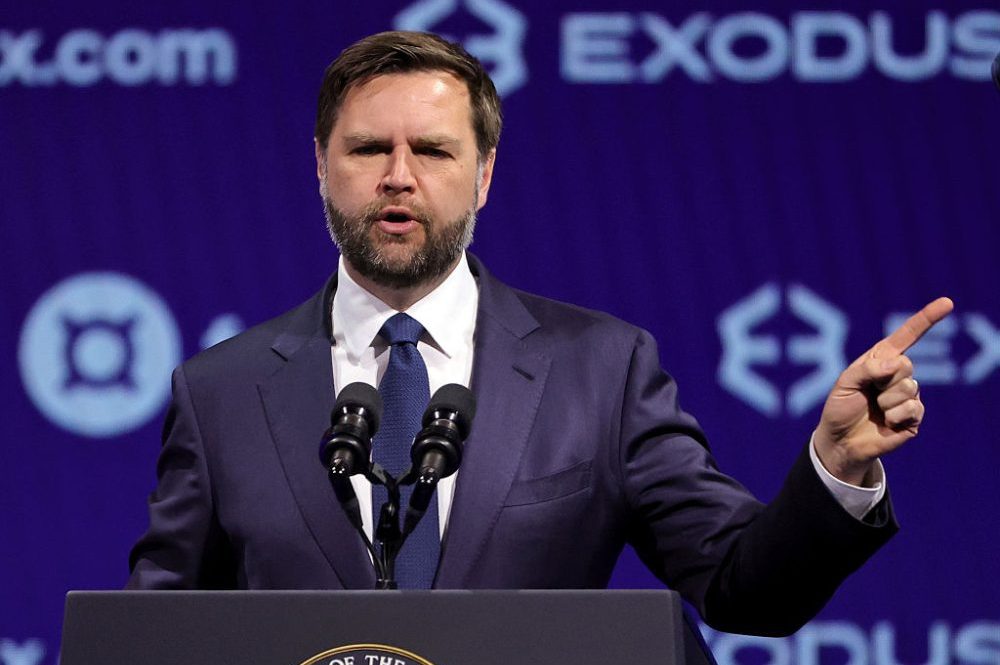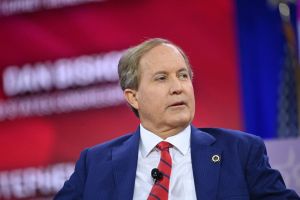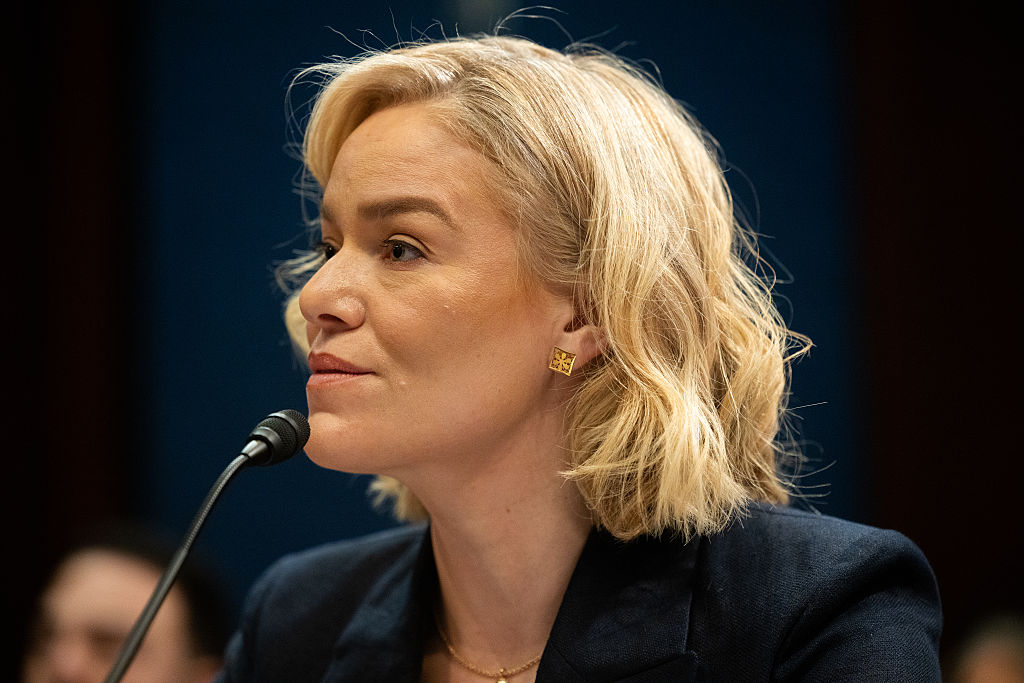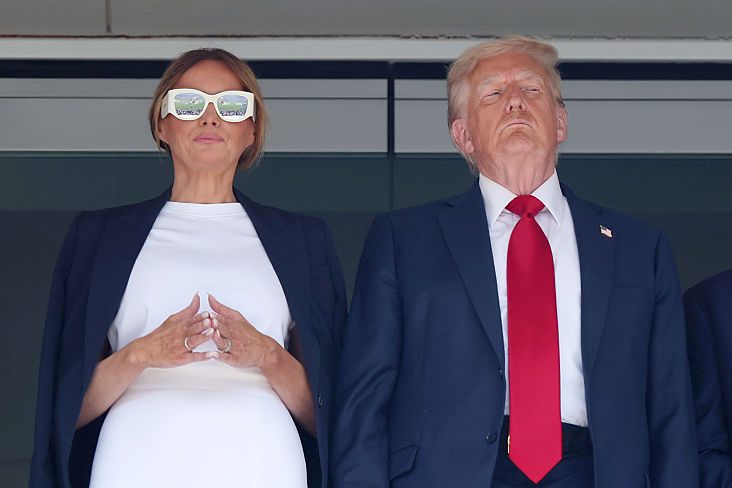“It’s been quite a while since I’ve been to a conference with this level of energy… I promise I’m not just saying that to juice my own memecoins.”
After dropping this clanger in his keynote speech at the 2025 Bitcoin Conference, J.D. Vance paused awkwardly for an applause which never arrived. Bar a few perfunctory laughs, this was one buzzword the Vice President rolled out which failed to impress the thousands-strong crowd in Vegas yesterday afternoon.
To understand the frosty reception, a cursory glance through Trump’s recent dealings in this chaotic corner of the crypto industry is required. On January 17 this year – a mere three days before his inauguration – the soon-to-be president of the United States launched his own memecoin: $TRUMP.
This foray into commodified memes is estimated to have raked in $350 million for Trump through token sales and trading fees. Within a day, the total value of Trump’s memecoin would balloon to over $27 billion. It would go on to reach an all-time-high valuation of over $75 billion, making Trump – who retained control of 80 percent of all tokens – one of the richest men in the world, at least on paper. All of this took place within around 48 hours of the coin being launched onto the market.
Since then, it’s been a steady decline for Trump’s memecoin project, with the token now down about 83 percent from its record high at the start of the year. This is in spite of the broader crypto industry continuing to rally: Bitcoin, the flagship cryptocurrency, reached a new highest ever price last week when it traded above $111,000 per coin.
The reason for the lackluster performance of Trump’s memecoin venture is clear: not only is it a blatant cash grab, with the $TRUMP token having no real utility, but also the potential conflicts of interest it throws up are immense.
Tellingly this is a sentiment which even die-hard crypto advocates share. Anthony Scaramucci, the founder of asset management firm SkyBridge Capital who briefly served as White House director of communications in Trump’s first term, summarized the situation on X: “Now anyone in world can essentially deposit money into bank account of President of USA with a couple clicks. Every favor – geopolitical, corporate or personal – is now on sale, right out in the open.”
These concerns were brought to the fore last week when Trump hosted a gala dinner at his Virginia golf club for the largest holders of the $TRUMP coin. Complaints about the food aside, the event came under heavy fire for the ethics issues it raised, with Senator Elizabeth Warren describing it as an “orgy of corruption.”
Among the luminaries in attendance at the dinner was crypto billionaire and controversy merchant Justin Sun. Chinese-born Sun had legal action brought against him by the US Securities and Exchange Commission in 2023 for a slew of alleged crimes, including illegal distribution of crypto assets, market manipulation and surreptitious payments to celebrity promoters. The charges were dropped in February this year, shortly after Trump took office and fired former SEC chief Gary Gensler.
This was one topic on which Vance’s speech at the Bitcoin Conference did not disappoint: he enjoyed rapturous applause for highlighting the recent removal of Gensler from office, and doubled down on “eliminating the rules, the red tape and the lawfare we saw aimed at crypto by our predecessors.”
Of course, leniency like this doesn’t come cheap: throughout the 2024 election cycle, crypto lobby groups raised over $197 million to sway the outcomes of congressional races. $133 million of that was deployed in pivotal contests, with the crypto lobby backing whichever candidate they saw as more sympathetic to their industry.
And it wasn’t just elections which saw an influx of crypto cash: for Trump’s inauguration celebrations, crypto firms gifted a lavish $18 million. Industry giant Ripple’s donation of $4.9 million was the second largest overall, even surpassing firms such as Exxon Mobil and Google.
Crypto firms funnelling colossal sums into politics is not without precedent. It wasn’t so long ago that now-disgraced and imprisoned crypto fraudster Sam Bankman-Fried, who founded the fraudulent exchange FTX, sought to buy political influence with $100 million of stolen customer funds.
And yet, with so much money again up for grabs, it’s easy for politicians to turn a blind eye and welcome the crypto bros back into the corridors of DC, even in spite of startling reports like the one recently published by the FBI which shows the increasing centrality of crypto in cybercrime.
Leaders and lawmakers should be very circumspect about letting the wolves into the henhouse: having the biggest players in a historically crime-addled industry write their own rulebooks is akin to letting the lunatics govern the asylum. And yet, as Trump’s net worth soars thanks to memecoins, and with the 2026 midterms on the horizon, it seems minds have already been made up.
Vance’s closing exhortation to the crowds of the Bitcoin Conference to “keep the pressure up” makes the message abundantly clear: crypto money, and the influence it buys, is here to stay.
Trumpworld’s embrace of crypto should raise suspicion
Trump’s memecoin $TRUMP is now down about 83 percent from its record high at the start of the year

Vice President JD Vance delivers a keynote address at the Bitcoin Conference in Las Vegas, Nevada (Getty)

























Leave a Reply